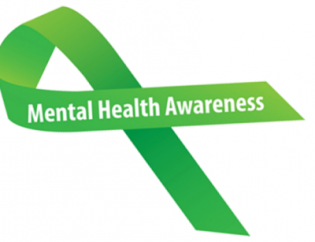
Feelings are often labelled good or bad as if they are something to be sought (ie happiness) or avoided (ie sadness). But feelings are much more than this and have an essential function in our emotional and psychological wellbeing. This feelings unravelled article will teach you how.
If your feelings could talk, what would they say? Feelings are the physical representation of emotion. They communicate your wants and needs. They tell you when you are happy and when something isn’t right.
Yet, all too often, we ignore the negative ones. Sometimes this is because of the way we were brought up (it isn’t nice to be angry; big boys don’t cry, etc) and sometimes it’s because we have no idea how to deal with them, or because the feelings are too painful.
Feelings – Past, Present, Future?
Negative feelings can be a combination of events from the past, stresses in the present and worries about the future, even though the only reality is now. If you find yourself over-reacting to situations, it is unlikely to be simply about what is happening in the moment but rather an emotional resonance with what has happened in the past – a reminder which supports a limiting belief.
For example, someone being late to meet you for lunch may remind you of all the times that people have let you down, whether intentionally or otherwise, and may perpetuate a limiting belief of “I am not important”.
Feelings Unravelled and the Vicious Cycle
So what happens? We learn to suppress and repress our feelings and this can lead to problems in relationships and even our health. It also leads to distracting behaviours. When we feel bad, we often distract with food, alcohol, drugs, cigarettes, shopping, gambling etc. But this does not deal with the underlying problem, it simply disguises it for a moment or two. When we suppress in this way, the underlying problem grows in intensity – like it is shouting to be recognised.
It doesn’t matter how much food you eat, alcohol you drink, cigarettes you smoke or stuff you buy – it will not help you feel less bored, anxious, frustrated, depressed or lonely. Those feelings come right back and you need more of your distractor to help you feel “normal”. It is a vicious cycle and it’s important to deal with the core issue when you can.
Ask yourself: “How much do I have to eat (buy/drink/smoke/work/etc) to resolve this issue?” Distractors are ultimately unsatisfying because you do not truly meet your emotional need.

Feelings Unravelled: What they are and They Need
There are eight main negative emotions. Here is what they mean:
| Feeling | What it’s telling you | What it wants |
| Boredom | Lack of challenge | Fulfilment and growth |
| Anger | A sense of unfairness or of a boundary being broken | To make things fair and create clear boundaries |
| Guilt | Feeling that you have been unfair or unkind to someone | To make amends |
| Sadness | Loss (real or imagined; person, status or item) | To feel whole |
| Loneliness | A lack of connection to yourself, to others or the world | Meaningful relationships |
| Inadequacy | Feeling unworthy | To feel good enough |
| Stress | A feeling that you have more to handle than your perceived ability to cope | A feeling of control |
| Fear | Feeling insecure or in danger | To feel safe and secure |
When these feelings are ignored, they can lead to frustration (that what you are doing is not working) and, ultimately to depression. The only way to avoid this trap is to learn how to deal with your feelings constructively.
Learn to Listen to your Feelings
Your feelings are your signposts to what is happening in your life. When you listen to what your feelings are telling you and respond appropriately, you are on your way to feeling a lot better about yourself, gaining perspective on a situation and having a healthier relationship with yourself and others.
The next article will help you find constructive ways of dealing with your feelings.
In the meantime, if you have any questions, or want 1:1 help, do feel free to contact me.











